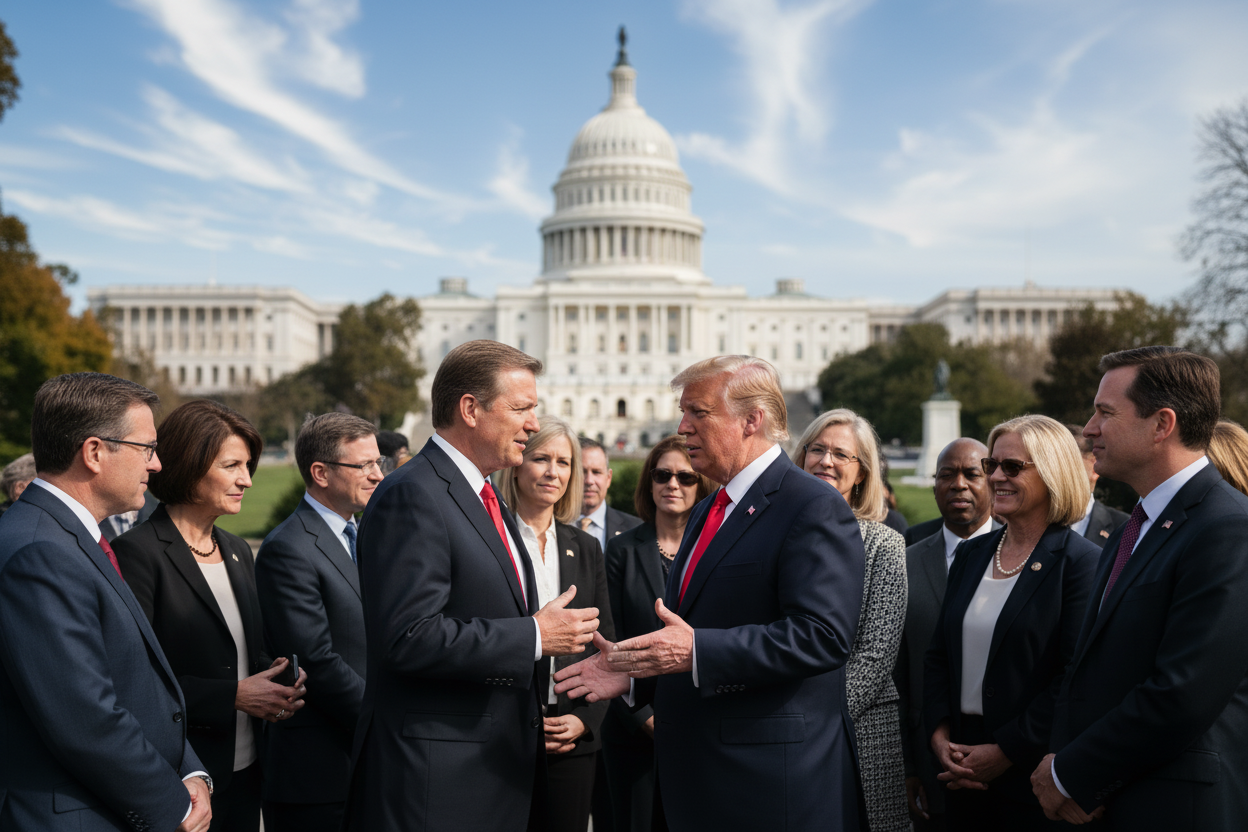Speaker Johnson Calls Trump's 2028 Talk a 'Troll'

Speaker Johnson Calls Trump's 2028 Talk a 'Troll'
House Speaker Johnson dismissed the possibility of Donald Trump running for president in 2028 as "trolling," deeming it an unlikely scenario. Johnson's comment reflects an analysis of Trump's political intentions and concerns within the party regarding his potential moves. While some in political circles suggest Trump's statement may be a strategic gesture to rally his base, Johnson appears to believe it is detached from realistic political considerations.
Meanwhile, on August 18, 2025, Jill Lawrence published an opinion piece expressing her views on Trump's remarks. The piece presents various perspectives on Trump's political ambitions and their feasibility, sparking debate within the political sphere. In particular, Lawrence analyzes Trump's past statements and actions, delving deeply into his political strategies and goals. She also assesses the reactions of Trump's supporters and opponents, evaluating his political influence.
Donald Trump made a strong impression during his 2016 Republican National Convention acceptance speech, stating, "I alone can fix it." At the time, Trump's words resonated with many voters, reflecting a desire for change in American society. However, some criticized Trump's statement as being arrogant and authoritarian. Trump's remark is considered a prime example of his political style and a factor that further deepened the divide between his supporters and opponents.
Recently, amid growing concerns about public safety in Washington D.C., an employee of the government efficiency department was the victim of a carjacking attempt in the early morning hours in an area with a high concentration of bars and restaurants. The incident reignited the debate over crime in Washington D.C. and amplified residents' anxieties. Police launched an investigation immediately after the incident but have yet to apprehend a suspect. Calls for strengthening security in Washington D.C. are growing louder.
However, violent crime rates in Washington D.C. hit a 30-year low last year and have decreased by 26% this year compared to 2024. While these statistics suggest that the security situation in Washington D.C. is improving, some question the accuracy of the figures, arguing that they do not reflect the perceived level of safety. In particular, the recent carjacking attempt has fueled the debate over security in Washington D.C. and undermined confidence in the statistics.
Donald Trump recently declared a "public safety emergency" following attacks on a teenage Elon Musk supporter and a DOGE operator. Trump stated that his actions were aimed at alleviating security concerns and ensuring the safety of residents in Washington D.C., but some have criticized Trump's actions as being politically motivated. In particular, Trump's supporters have welcomed his actions, while opponents have expressed concerns about his authoritarian tendencies.
Trump has federalized the Washington D.C. police and initially deployed 800 National Guard troops. Additionally, he ordered 450 federal police officers from 18 agencies to patrol the city last weekend. Trump stated that these measures were intended to strengthen security in Washington D.C., but they have been criticized as infringing on the city's autonomy. In particular, the Mayor and City Council of Washington D.C. have protested Trump's actions and are considering legal action to defend their autonomy.
Furthermore, in June, Trump deployed 4,000 National Guard troops and 700 Marines to Los Angeles, despite opposition from California Governor Gavin Newsom and Los Angeles Mayor Karen Bass. This was ostensibly to restore order during immigration enforcement, but Governor Newsom has filed a legal challenge, and a court battle is underway. Governor Newsom argues that Trump's deployment of troops violates California's autonomy and has vowed to prevent it through legal means.
Meanwhile, Congress mistakenly cut $1.1 billion from Washington D.C.'s budget last spring. This budget cut has raised concerns that it could disrupt the provision of public services in Washington D.C. In particular, difficulties are anticipated in areas directly related to citizens' lives, such as education, welfare, and security, due to budget shortages. The Washington D.C. government has requested that Congress restore the budget and is working to minimize inconvenience to citizens.
